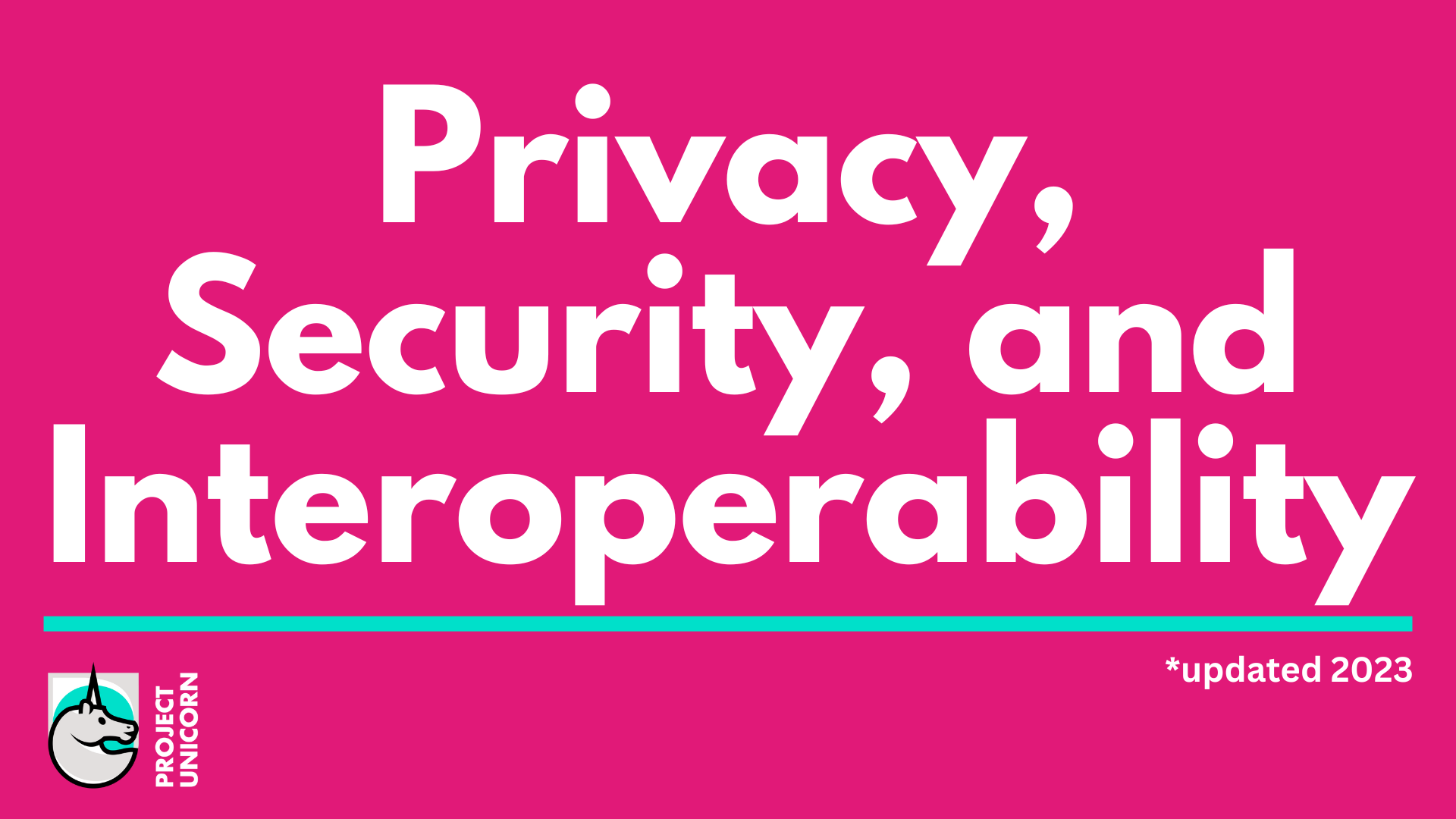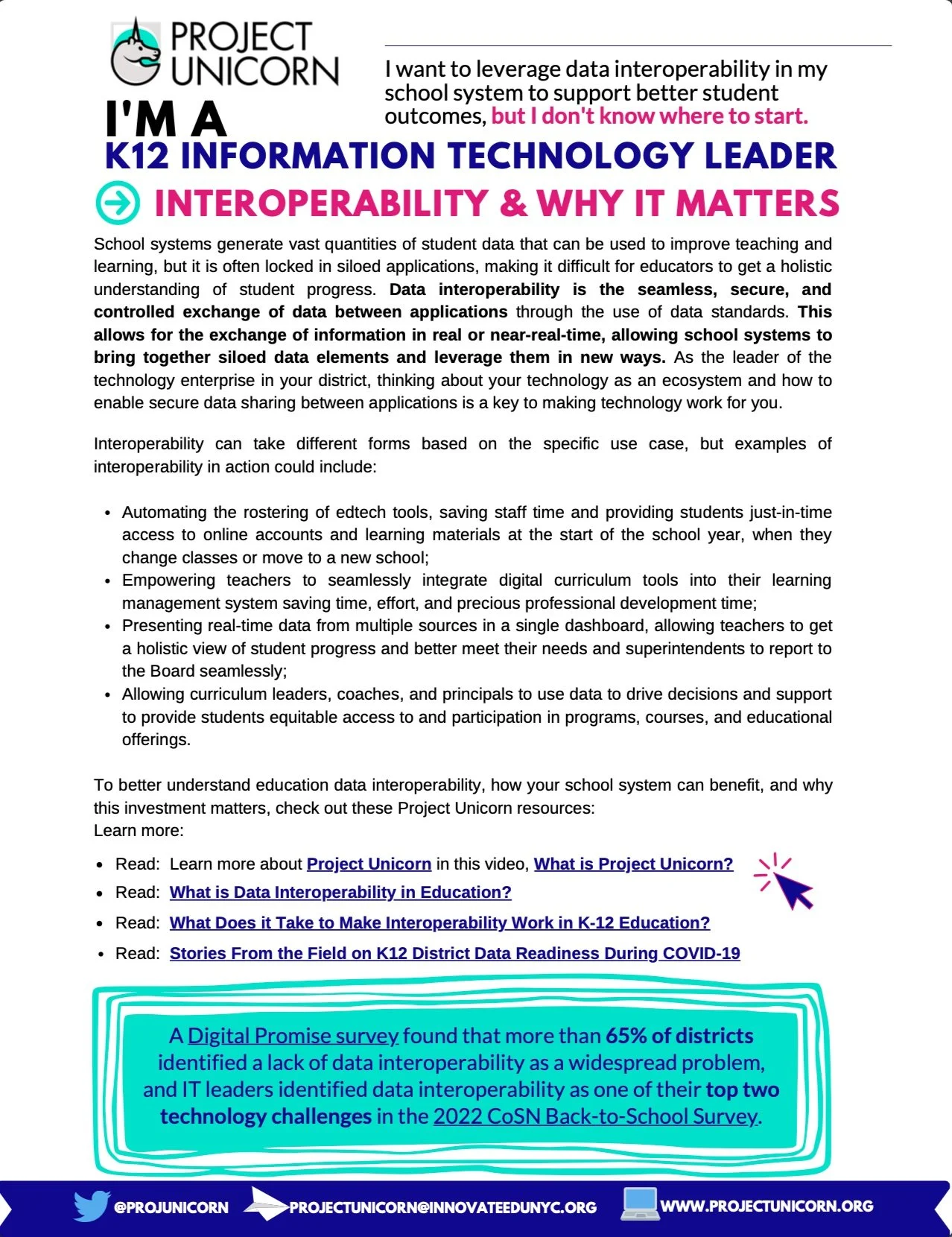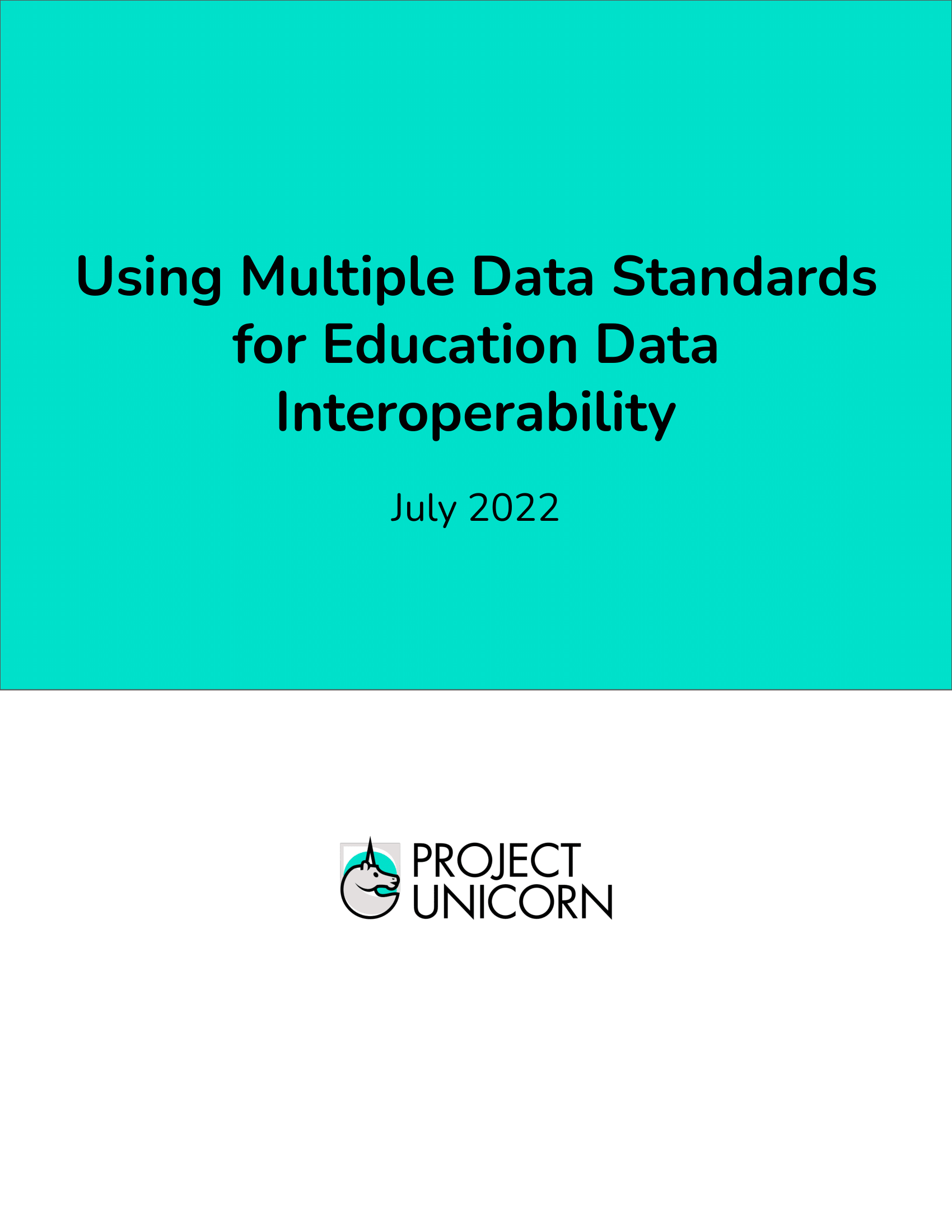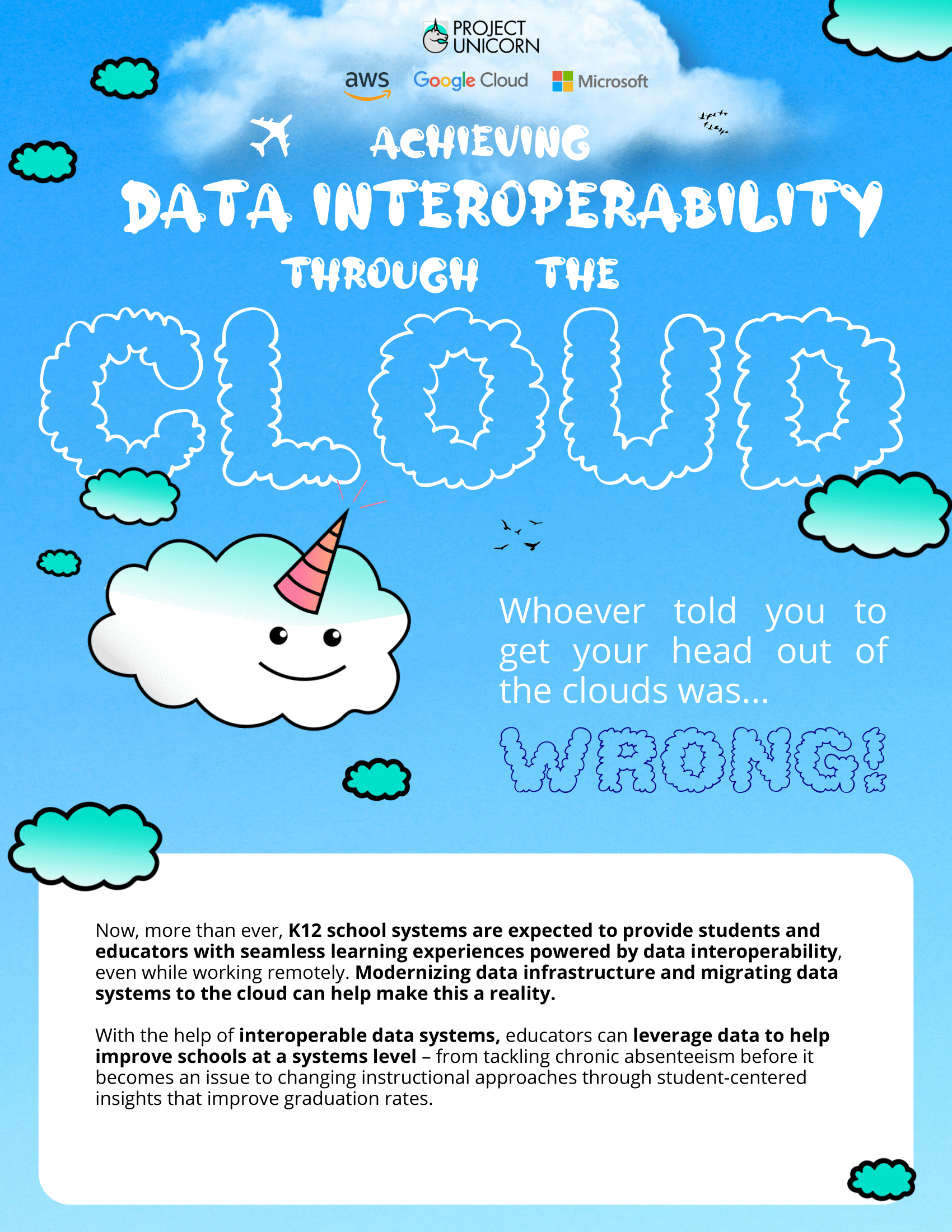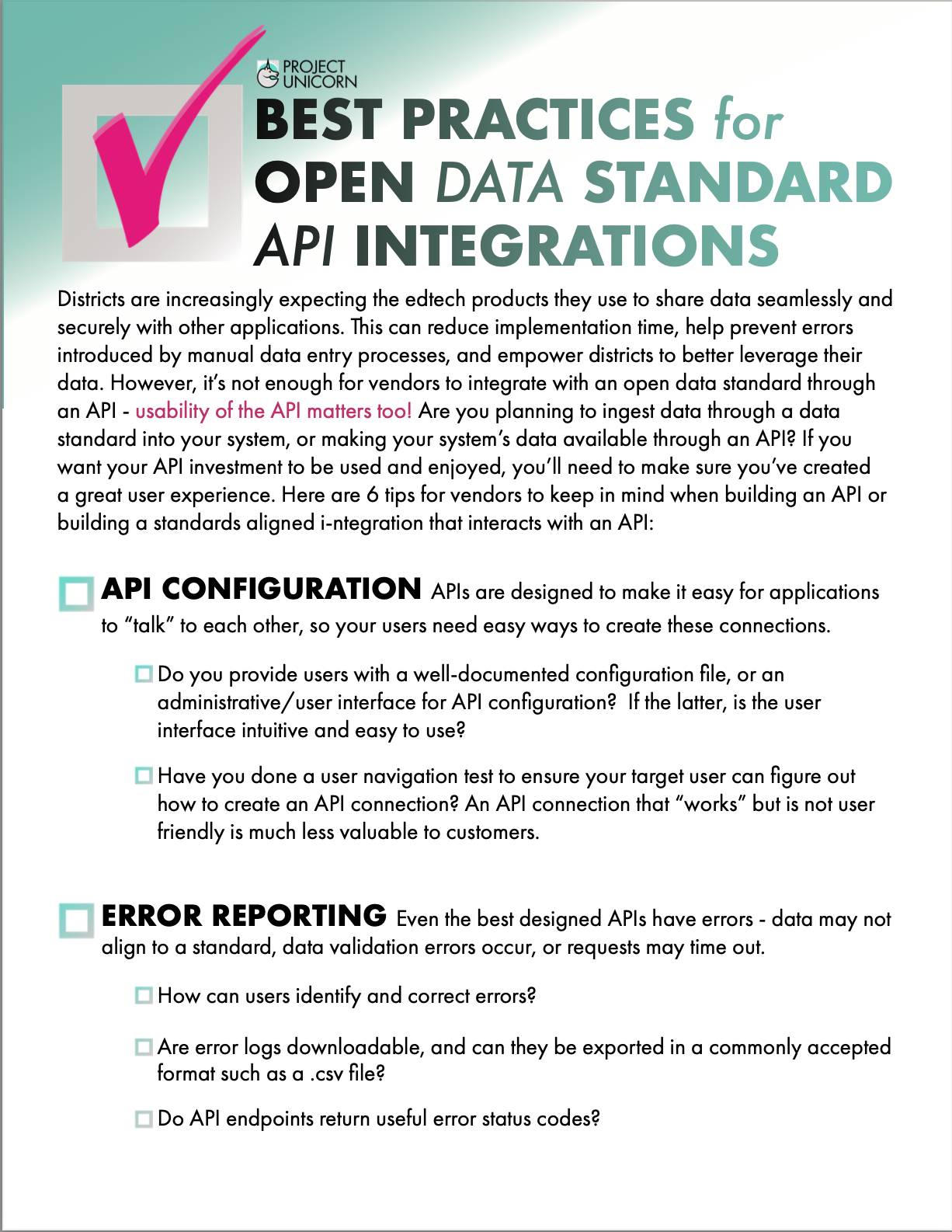As we work to provide physical infrastructure for our schools that is safe, healthy, and supportive for all students, the time has come to align resources towards creating a digital infrastructure that is equally safe, accessible, resilient, sustainable, and future-proof.
Read MoreProtecting student data privacy is critical to implementing interoperable technology systems. Read this jump-start guide to learn about key education data privacy organizations and resources that support best practices in student data privacy during your interoperability journey.
Read MoreTo provide more insight and guidance into how edtech purchasing happens and consider how educators and leaders can work together to make more informed purchasing decisions, the International Society for Technology in Education (ISTE) and Project Unicorn have released Better Edtech Buying: A Practical Guide - Revised Edition.
Read MoreData interoperability can make it easier for states to deploy and maintain State Longitudinal Data Systems. Learn how the Indiana Department of Education, North Dakota Department of Public Instruction, South Carolina Department of Education, and Texas Education Agency are leveraging data interoperability to support data-based decision-making at the federal, state, district, and local levels.
Read MoreWhy One Supports the Other: Data interoperability is a helpful component to building and maintaining quality software. Interoperability isn't a panacea, but making intentional and informed choices about implementing an interoperability standard contribute to better development practice, better privacy practice, and better security practice. Here are 5 ways interoperability, privacy, and security enhance each other.
Read MoreWith the explosive growth of digital resources to support both instruction and business decision making, more K-12 staff know how to use technology — and value the use of data to inform practice. Yet many express concern that they are “data rich and information poor,” which makes integrating, analyzing, and applying data a key challenge. Educational leaders who can harness the growing data generated in their districts can be empowered to transform both instructional and business practices.
Read MoreData integration platforms, products and services can help school systems seamlessly and securely bring together previously siloed education data, supporting advanced data analytics and reporting. This can help educators make better decisions to support students and save school systems time and money. Peruse our list of integration specialists to find the right provider and solutions for you!
Read MoreThe Standards Glossary by Project Unicorn is a directory that contains a list of Interoperability Standards in K-12.
Read MoreStudent data can be used to improve teaching and learning, but the vast quantities of data is often locked in siloed applications that make it difficult for educators to get a holistic understanding of student progress. Data interoperability can help your school system unlock this siloed data and better support student outcomes. Review the First 3 Steps for K12 Information Technology Leaders to learn more about the first steps IT leaders can take to leverage their school system’s data!
Read MoreAre you a startup or early stage edtech company? Learn why data interoperability is so important in today's competitive market and how you can make it your market advantage. After all, what startup doesn't want to be a Unicorn? Read more below!
Read MoreDigital equity is achieved when all individuals and communities have the information technology capacity that is needed for full participation in the society and economy of the United States (U.S.). Reaching this goal for all learners is a challenge that has been highlighted and exacerbated by the digital opportunity and equity gaps exposed due to the COVID-19 pandemic…”
Read MoreData interoperability standards make possible the seamless, secure, and controlled exchange of data between applications. If you’re wondering “What’s the best data standard?” you may be asking the wrong question. Instead of thinking “what standards team should I pick” you should be thinking “what standards should I have on my team?” The answer will depend on the game that you’re trying to win. Read more below!
Read MoreThis short guide was developed to help school system leaders and edtech service providers engage in productive conversations about data interoperability. This guide is meant to be part of a structured dialogue with the intention to solicit feedback and promote candor. Read more below!
Read MoreWhoever told you to get your head out of the clouds was wrong! Now, more than ever, K12 school systems are expected to provide students and educators with seamless learning experiences powered by data interoperability, even while working remotely. Modernizing data infrastructure and migrating data systems to the cloud can help make this a reality.
Read MoreDistricts are increasingly expecting the edtech products they use to share data seamlessly and securely with other applications. This can reduce implementation time, help prevent errors introduced by manual data entry processes, and empower districts to better leverage their data. However, it’s not enough for vendors to integrate with an open data standard through an API - usability of the API matters too! Read more about best practices for open data standard API integrations.
Read MoreThe Project Unicorn Interoperability Certification signals to school systems and districts that an edtech product prioritizes data interoperability. There are four tiered badges available representing levels of interoperability, with tier 4 equaling the highest standard.
Read MoreInteroperability can be your market advantage! Data interoperability is the seamless, secure, and controlled exchange of data between applications through the use of data standards. This allows for the exchange of information in real or near-real-time, allowing school districts to bring together siloed data elements and leverage them in new ways. Aligning to data standards demonstrates visionary leadership, signaling your commitment to helping educators and administrators make the most of their data and positioning your company as a market leader.
Read MoreBeing certified to a data standard signals to customers that your product is truly interoperable. Certification gives buyers the confidence that their educational data will flow seamlessly and securely between their applications. Discover steps to certification for Ed-Fi Alliance, Access 4 Learning Community, and IMS Global here.
Read MoreClarity around how the Ed-Fi Alliance Standards and IMS Global Learning Consortium® Standards can be used in support of educators is a common and increasingly frequent request from the Ed-Fi Community. In many cases, Ed-Fi and IMS Global standards often seek to solve different problems, and therefore a better understanding of the tools and functionality available for various use cases is important to selecting the best solution for a given use case. Each organization’s technologies provide real, and distinct, value to users in their daily lives and work….
Read MoreSigning the Project Unicorn pledge is just the start for EdTech Vendors! Rate the interoperability in your edtech data tool by following the steps below!
Read More














